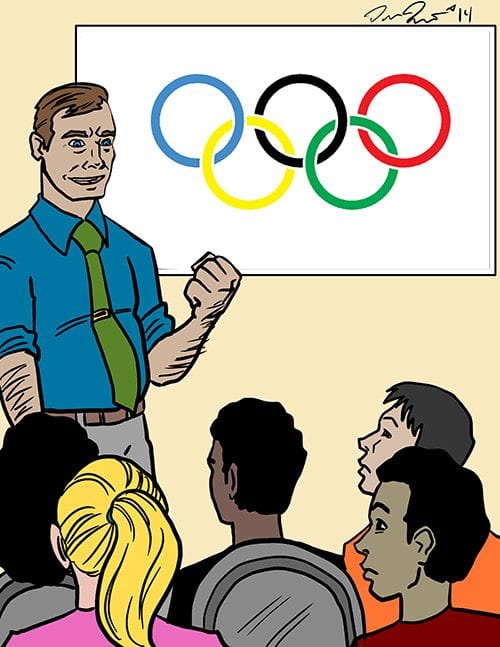
Persistent competition is an element of the American character. There seems to be a constant desire to be “number one.” The national motto could be “there’s always room at the top.” Competitors are often willing to use improper or illegal stratagems to secure an advantage to reach that goal. Racial discrimination is a common practice that unfairly corrupts the competitive process.
One way to view the Civil Rights Movement is as a national campaign to level the playing field and eliminate racial discrimination as an impediment to black social progress. However, the cruelty, intensity and duration of racial bigotry make it difficult to assess the movement so objectively. Nonetheless, it is necessary to understand the underlying nature of the conflict in order to devise a winning strategy.
The goal of those fighting for civil rights was to change the laws so that victims of discrimination would have recourse to the courts. There was little expectation among the black leaders that the racially hostile attitude of bigots would suddenly change. The plan was to provide more opportunities so that blacks could successfully compete to improve their socio-economic condition.
The Civil Rights Act of 1964 made racial discrimination in employment, education and places of public accommodation unlawful anywhere in the country. And the Voting Rights Act of 1965 provided protections for black voters in the states of the Old Confederacy. Despite these major changes in the law, urban riots erupted across the country.
The same month that the Voting Rights Act became effective, the Watts riot broke out in California. A year later in July there were major riots in Hough (Cleveland), Newark and Detroit. Another round of riots erupted in Washington, Baltimore, Louisville, Kansas City and Chicago after the assassination of Martin Luther King in April 1968.
While the King riots are understandable, sociologists have analyzed the other riots, and some seem to believe that they were primarily a reaction to excessive police violence. That might well be, but that is nothing new. Police mistreatment of blacks is an historical constant. Lynchings would rarely have occurred without the support of the southern sheriff.
It could also well be that blacks were disappointed that the end of the Civil Rights Movement did not include their manumission from poverty and an inferior status. In fact lawsuits to end discrimination in education continued. Social and economic equality was no closer at hand. The Civil Rights Act of 1964 merely gave blacks license to compete even though they were already well behind in the contest for success.
After fighting for civil rights for generations, black leaders were delighted to celebrate the victory. Little attention was devoted to changing the African American attitude from supplicant to aggressive competitor. That change in attitude was helpful on the football field and the basketball court, but it has not yet fully emerged in the classroom or the boardroom.
Politics is another area where competitiveness has been effective. Blacks were number one in the turnout to the polls in the last presidential election. Voters defied the planned disruption in the election by standing in line for hours to vote. Blacks must stay ready to battle the efforts of the bigots to diminish the impact of the black vote in future elections.
Blacks must also become more entrepreneurial. In Jim Crow days it was often dangerous for blacks to establish businesses to compete with whites, but this is a new day. It is time for blacks to develop strategies to win in America’s competitions for business and professional success. The U.S. Constitution protects your individual rights, but it does not guarantee your business success.






